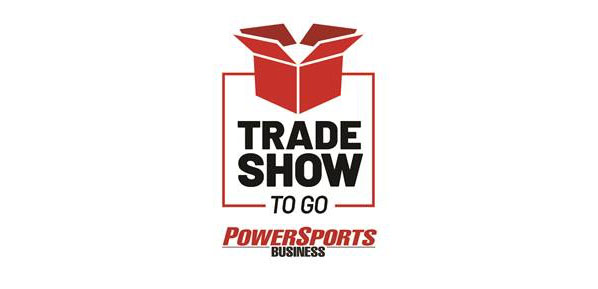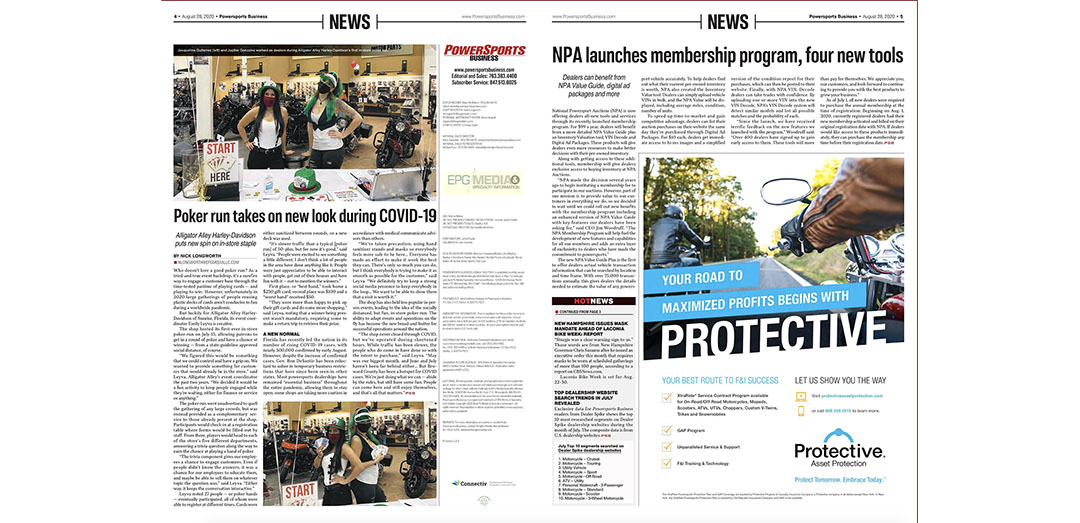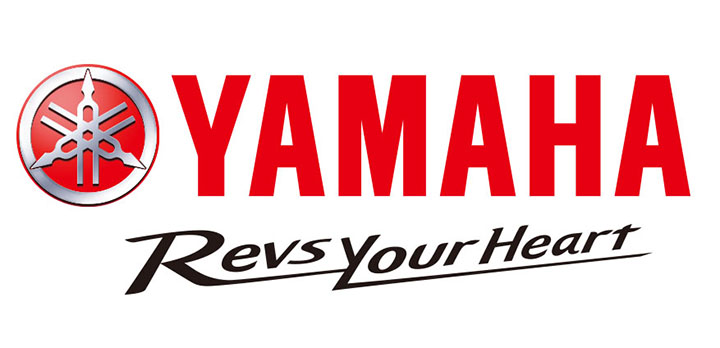How powersports dealers are dealing with COVID-19
Throughout the entire powersports dealer landscape, a common theme has been appearing — dealerships are having to change the way they conduct business due to the coronavirus. PSB’s Nick Longworth takes a look at how some dealerships are reacting.
While some owners resist the trend to physically lock dealership doors, most are altering their day-to-day procedures in order retain some semblance of normalcy — including customer capacity limits on showroom floors, 6-foot distances between all interactions and increased drop shipping, curbside parts pickups and online selling.
“Our dealerships are shut down since Saturday, March 21. We informed our staff that due to the health and well being of our staff, families and community we would be sending everyone home until April 1 — about a 10-day window to gather new information, get new updates and make decisions from there,” said Eddie Keefer, vice president Keefer’s Powersports and Mountain State Harley-Davidson in Logan and Delbarton, West Virgina.
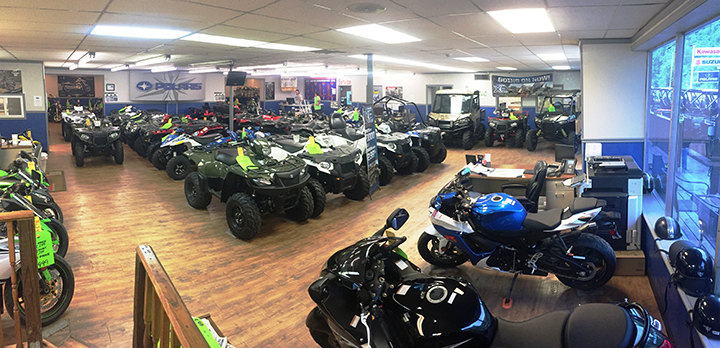
However, not every dealership closed its doors following the onset of COVID-19 in the U.S.
“We haven’t changed hours — we’ve gotten a lot of phone calls asking when we’re open. It’s been business as usual, with less foot traffic. We’re just waiting for the ball to drop at the moment,” said Mike Leclerc, sales manager for the last eight years at Troy Powerports in New Hampshire. At the time of publication, the dealership had yet to alter its business hours due in part to the state classifying the business as essential to service police utility vehicles. Its remote geographic location also makes the dealership low risk for virus concentration among the community while practicing social distancing.
But even among those that remain open for business, due to the coronavirus nearly all dealerships have also incurred a financial burden — including what marketing efforts and events should be curtailed.
“So far we’ve cancelled all events in March and April,” said Keefer.
“We have a spring open house coming up that will be cancelled,” said Leclerc.
During times of financial uncertainty, it’s pivotal for successful dealerships to communicate with their customer base any important information they might need, or even want — from important news updates in the community, to extracurricular online tutorials, giveaways and virtual product lineup announcements. It’s a good idea to be proactive in communicating a unified message on behalf of the entire dealership, throughout all company media assets and modes of communication.
“We had a pretty good game plan before [we closed] – We contacted every service, parts and sales customers before we left. We also posted on Facebook and our website, and our general managers have been following up on any inquiries,” said Keefer.
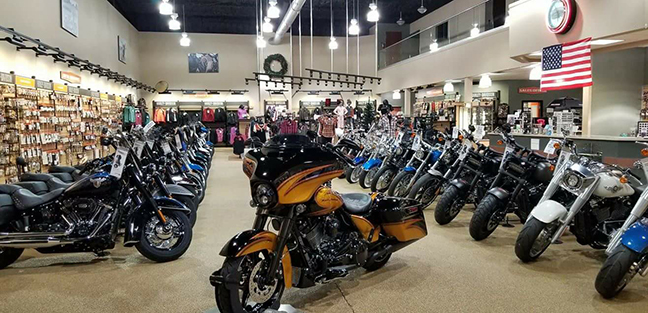
“We have a strong social media presence with a little bit of radio ads,” said Leclerc, noting that the dealership also purchases TV ads, but they have become too expensive during this year’s election season. “We’ve been trying to stay present and active on social media — provide some entertainment, and stay on people’s minds. We have a ton of old inventory t-shirts that we’re giving away.”
According to recent news reports, as part of the economic stimulus package that passed Congress, small businesses will have low-interest loans more readily available to weather times of financial hardships.
However, even with loans available and partnerships established, quick and oftentimes hard decisions are being made. Increasingly dealerships have adapted to focusing on online sales, and unique delivery methods such as curbside drop-off for parts to keep business churning.
“March to September is about 70 percent of our yearly business. March is about 12 percent of sales for the year, April is about 14 percent and May is the same. Between three months, this will affect 40 percent of our business. It will definitely affect us,” said Keefer. “We were actually on track to have a spectacular March. It isn’t so much that the business isn’t there… We were doing great, and on track to have a great year.”
“It’s affecting sales by some people being weary about spending money. We haven’t seen business slow down much yet… but we’re kind of behind the curve,” said Leclerc. “There’s always some sales from people who want to buy on the spot — maybe we’ll miss out on some of that, but hopefully we won’t. We keep waiting for it to be completely silent, but the phone keeps ringing and we don’t stop quoting. We’ve always offered pickup and delivery and an online parts catalog, but we will do whatever it takes to keep the ball rolling.”
When determining staff allocations and potential layoffs, it’s advised to weigh both the human cost as well as the bottom line; it’s the employees who’ve made the dealership successful, but the dealership also still needs to be around to employ them as well.
“We’ve told all of our staff to go home, and we’ve paid them employees through April 1, but from there it will get a little bit sketchy. What we do from there will be dependent on the information we gather,” said Keefer. “We’ve wanted to put all of our employee’s minds at ease throughout this process. There are a lot of people laying off and putting fear into the community. We don’t want to make decisions on fear without good information.”
“We’ve told employees if they’re uncomfortable [coming in], we can lay them off so they can stay home, but New Hampshire has a capped max for unemployment, which is not even going to touch what they make in the shop. So they kinda have a choice,” said Leclerc. “You want to keep guys working and getting paid, because you know they have bills to pay.”
Throughout the entire process of adapting to the COVID-19 pandemic, it’s become increasingly important to not appear tone deaf in the ever-important court of public opinion. When this is all over, you will want to be seen on the right side of history.
“One of the biggest deciding factors for us is each of our dealerships is in the Hatfield-McCoy trail system, and on a day-to-day basis we see a lot of out-of-state people — our average customer drives 71 miles just to do business with us,” said Keefer. “One of the things we were fearful of is we might be part of the problem for our community by bringing tourism and people from other states in to ride the trail system. We want to be a good community partner and do our part. A lot of people in our area aren’t focused on the business aspect of things right now; there’s a higher priority and focus on the health and well being of everybody. We’ve taken the stance that it’s killing us to be home and not selling stuff and offering service, but we’re looking toward the health and well being of our communities… It’s not always about the business, sometimes you have to do the right thing.”
“I think we will absolutely be more cautious as we make contact with customers going forward,” said Angie Keefer, controller for Logan Motorcycle Sales, Hatfield Mccoy Powersports, Keefers Powersports and Mountain State Harley-Davidson. “We will sanitize more often, especially going into fall and winter. We’ll definitely just be more cautious all the way around.”
If all struggles are about learning a lesson, and ultimately exiting them triumphant no matter the circumstances, then dealerships are taking this opportunity to learn lessons that will carry into times of brighter economic prospect.
How is your dealership reacting to COVID-19? Send an email to Powersports Business staff reporter Nick Longworth at nlongworth@epgmediallc.com to be included in our next report.




